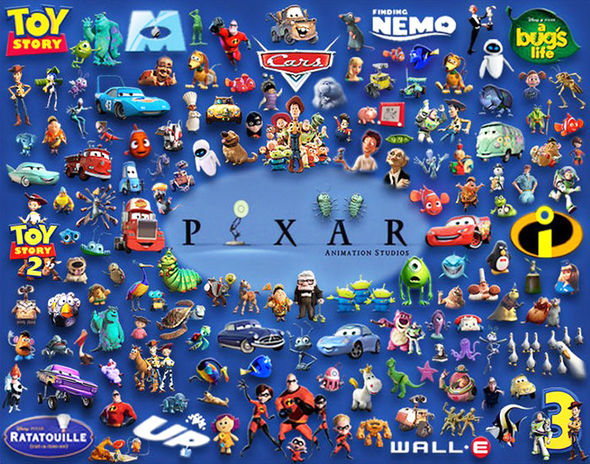Una de las artistas de storyboard de la factoria Pixar – Emma Coats – ha hecho públicas en su perfil de twitter las 22 enseñanzas – sobre narrativa y storytelling – que ha aprendido trabajando en la compañía.
Interesantes ideas para crear historias emocionantes y memorables como las del estudio que ha creado Toy Story, Cars, Rattatouille, Monsters S.A., Buscando a Remo, Wall-E …
A continuación traducimos algunos de los más interesantes:
#1. Admiras más a un personaje por intentarlo que por sus éxitos.
#2. Mantén en tu mente lo que es interesante para la audiencia, no lo que te gusta escribir. Pueden ser muy distintos.
#4. Hace mucho mucho tiempo había____Cada Día ____ Un día ____ Por eso ____ Por eso___ hasta que finalmente ____.
#11. Ponerlo en papel te permite empezar a arreglarlo. Si mantienes en tu mente una idea perfecta, no lo compartirás con nadie.
#22. Cuál es la esencia de tu historia, la forma más económica de contarla. Si lo descubres, parte de ahí.
Los 22 puntos originales:
#1: You admire a character for trying more than for their successes.
#2: You gotta keep in mind what’s interesting to you as an audience, not what’s fun to do as a writer. They can be v. different.
#3: Trying for theme is important, but you won’t see what the story is actually about til you’re at the end of it. Now rewrite.
#4: Once upon a time there was ___. Every day, ___. One day ___. Because of that, ___. Because of that, ___. Until finally ___.
#5: Simplify. Focus. Combine characters. Hop over detours. You’ll feel like you’re losing valuable stuff but it sets you free.
#6: What is your character good at, comfortable with? Throw the polar opposite at them. Challenge them. How do they deal?
#7: Come up with your ending before you figure out your middle. Seriously. Endings are hard, get yours working up front.
#8: Finish your story, let go even if it’s not perfect. In an ideal world you have both, but move on. Do better next time.
#9: When you’re stuck, make a list of what WOULDN’T happen next. Lots of times the material to get you unstuck will show up.
#10: Pull apart the stories you like. What you like in them is a part of you; you’ve got to recognize it before you can use it.
#11: Putting it on paper lets you start fixing it. If it stays in your head, a perfect idea, you’ll never share it with anyone.
#12: Discount the 1st thing that comes to mind. And the 2nd, 3rd, 4th, 5th – get the obvious out of the way. Surprise yourself.
#13: Give your characters opinions. Passive/malleable might seem likable to you as you write, but it’s poison to the audience.
#14: Why must you tell THIS story? What’s the belief burning within you that your story feeds off of? That’s the heart of it.
#15: If you were your character, in this situation, how would you feel? Honesty lends credibility to unbelievable situations.
#16: What are the stakes? Give us reason to root for the character. What happens if they don’t succeed? Stack the odds against.
#17: No work is ever wasted. If it’s not working, let go and move on – it’ll come back around to be useful later.
#18: You have to know yourself: the difference between doing your best & fussing. Story is testing, not refining.
#19: Coincidences to get characters into trouble are great; coincidences to get them out of it are cheating.
#20: Exercise: take the building blocks of a movie you dislike. How d’you rearrange them into what you DO like?
#21: You gotta identify with your situation/characters, can’t just write ‘cool’. What would make YOU act that way?
#22: What’s the essence of your story? Most economical telling of it? If you know that, you can build out from there.
Si te ha gustado este artículo quizás quieras conocer el próximo que publiquemos siguiendonos en twitter
Esperamos que te haya gustado " Storytelling according to pixar (El arte de contar historias según Pixar) ".
Ahora te toca a ti :
Comparte: No olvides compartir este contenido en tus redes sociales para que otros puedan beneficiarse.
Comunica: Si te interesa formarte o necesitas ayuda con tu comunicación personal en Elocuent podemos ayudarte. Ponte en contacto con nosotros por teléfono: +34 916 307 552 , email:info@elocuent.com o en nuestras redes sociales.
También puedes darte de alta en nuestra newsletter para seguir recibiendo contenido gratuito:


























